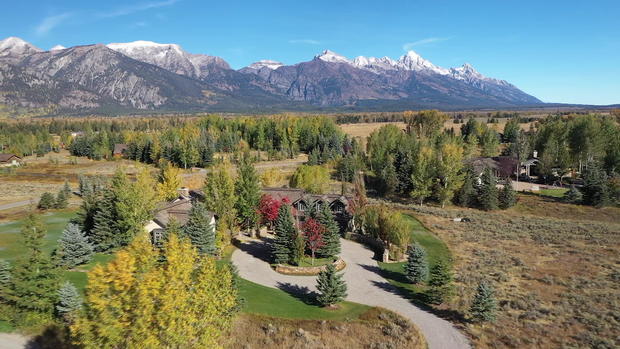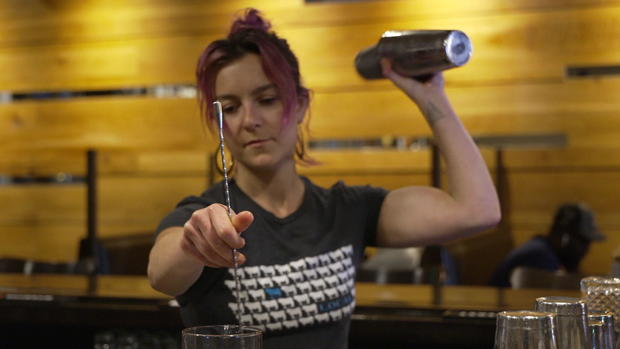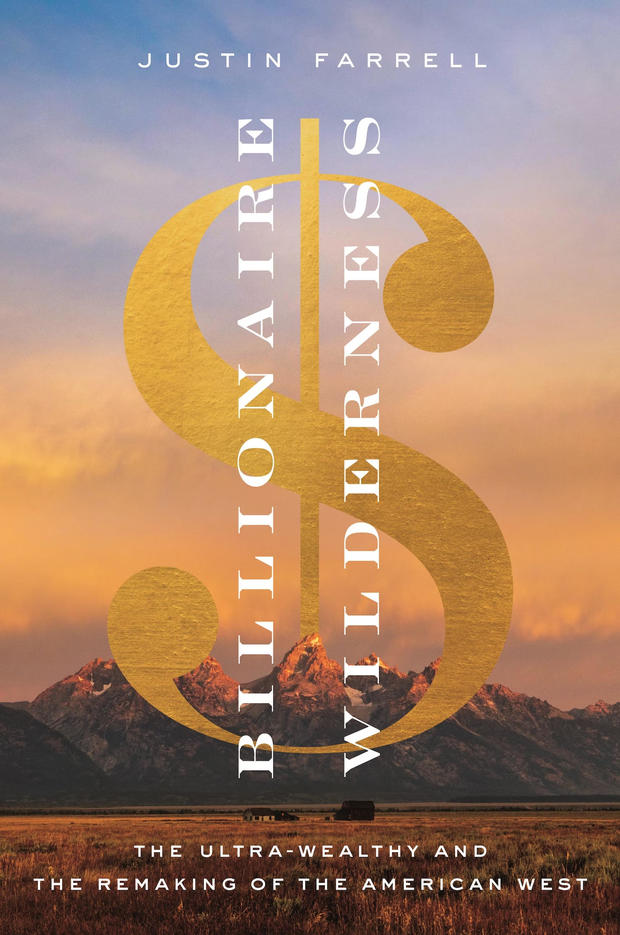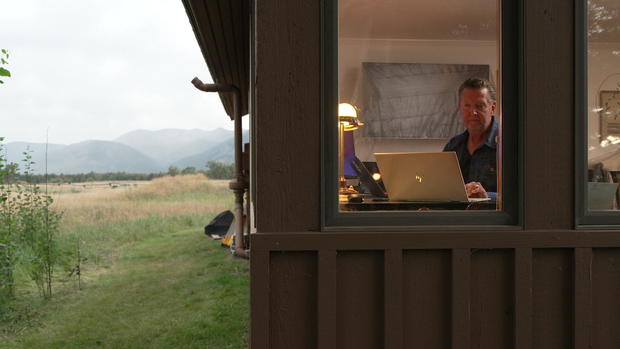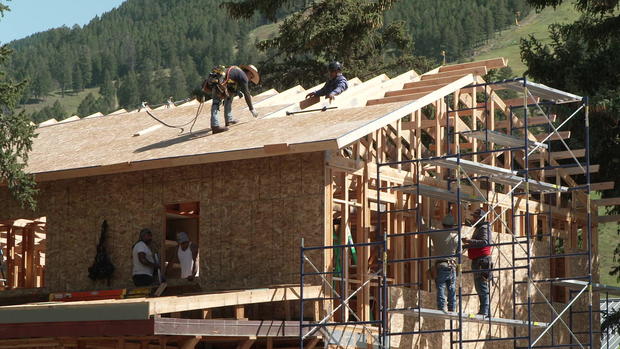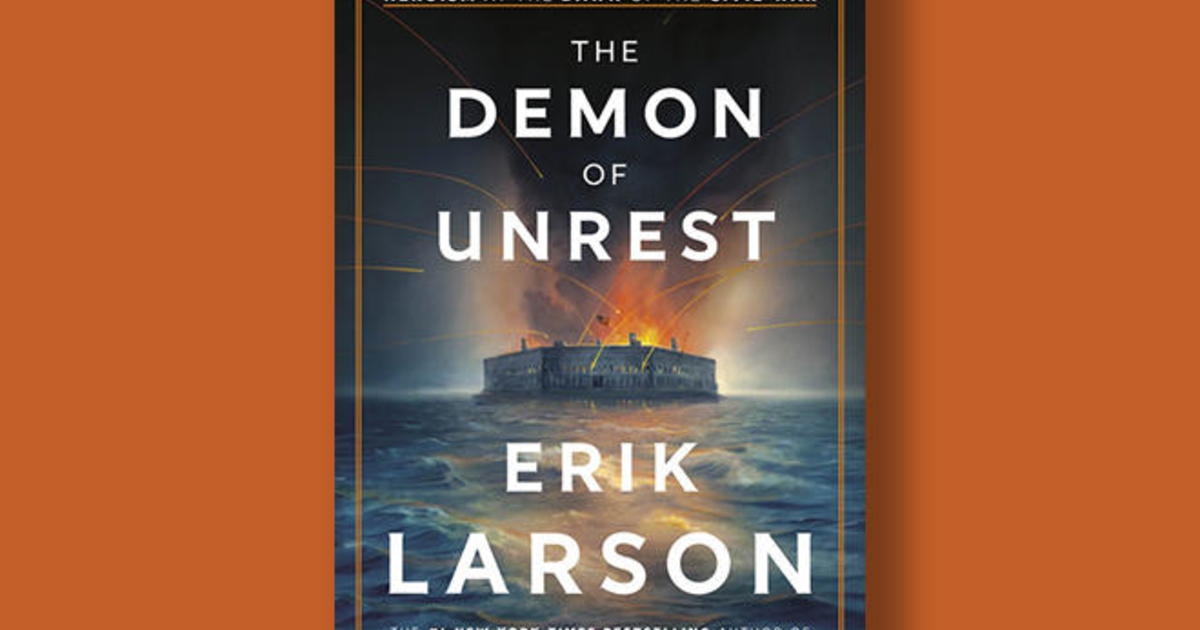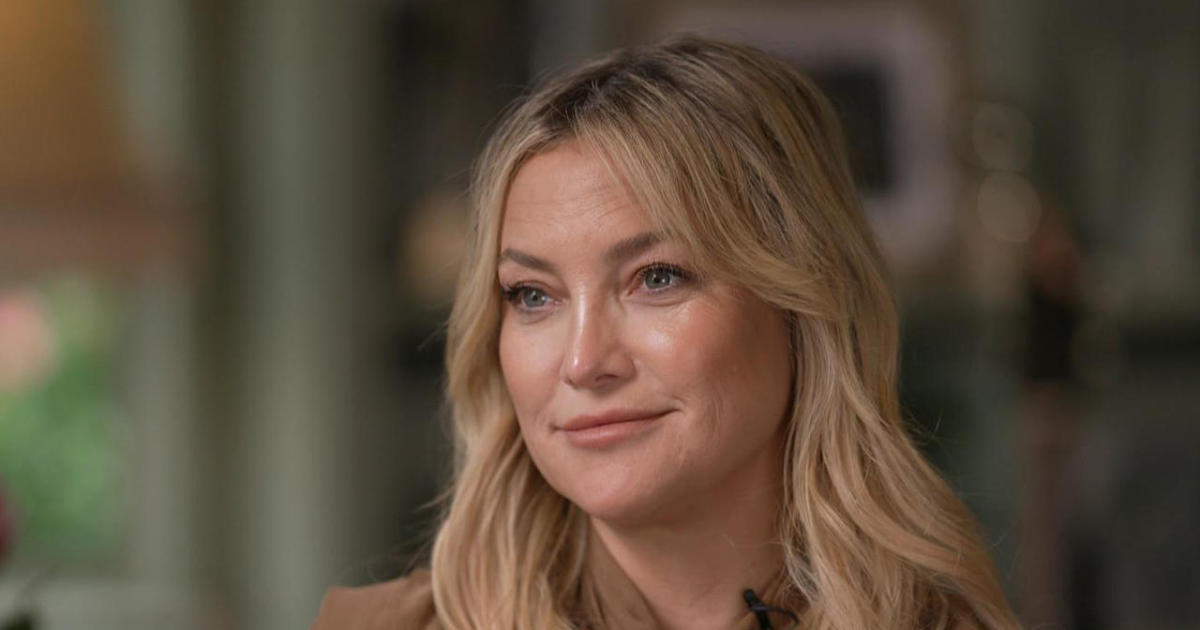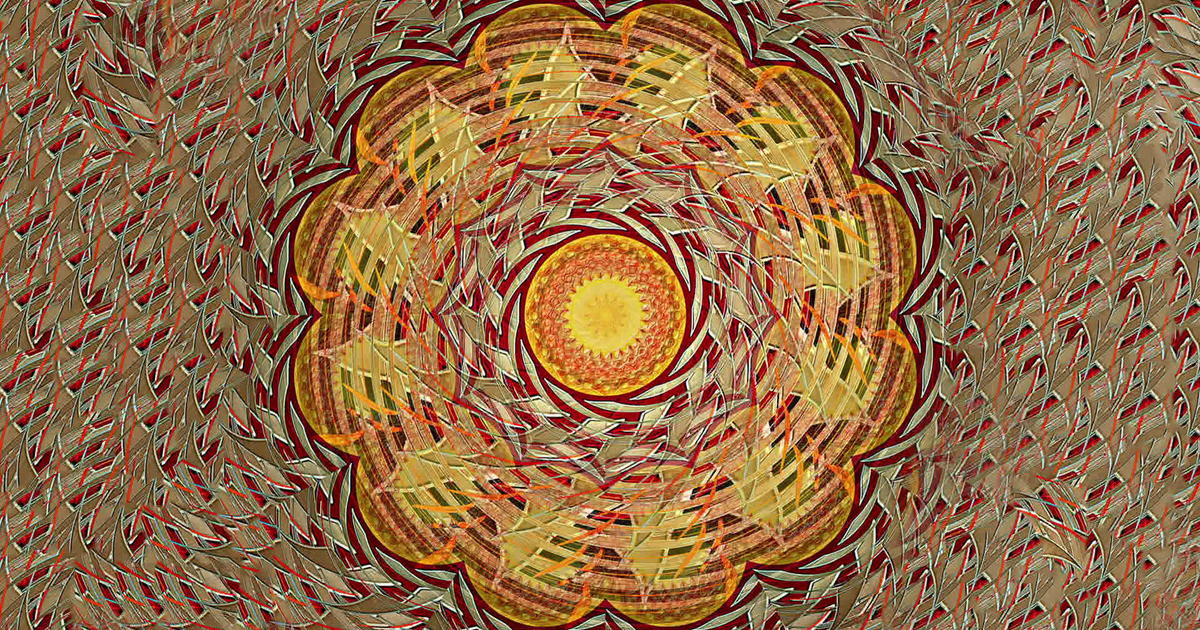Wyoming's new land rush
Jackson, Wyoming is often called the Last of the Old West. Its cowboy culture runs so deep it even rides long on the morning cup of coffee. And while some of the best things in life here may be free, you pay a steep price to live in this valley known as Jackson Hole.
Elizabeth Hutchings moved here from Massachusetts in 2018. "I love this community and I love the place where I live. But there is always that question in the back of your mind of, are you going to be able to survive here?"
For the first seven months, the only place she could afford to live was in her van.
Correspondent Ben Tracy asked, "Between living in your van, your car, and various apartments, how many places have you lived here in four years?"
"Eight or nine," Hutchings replied. "And in a lotta places there's been that question of, 'Oh, this is home, but for how long?'"
Teton County is now home to a divide bigger than those mountains for which it's named. It is the wealthiest, and most unequal, in America. The average income here is $312,000. The median home price in the county is now more than $3.6 million. That's left a food pantry overwhelmed by demand, staring at $6 million townhomes rising across the street.
Hutchings said, "The level of wealth you see and the level of disparity that you see, I mean, some people have more money than you could spend in ten lifetimes."
There's a saying in town that you either have three homes or three jobs. Many workers have been forced to cheaper towns nearly 40 miles away over sometimes treacherous roads.
Hutchings works at a local restaurant, and shares a basement apartment with a roommate. It's the most stable housing she's ever had here.
"If you're spending so much of your time driving, or so much of your time working, just trying to survive, I think everybody has that question of, is it worth it?" she said.
Yale School of the Environment professor Justin Farrell grew up in Wyoming, and is author of the book "Billionaire Wilderness." He said the middle class here has been completely hollowed out.
Tracy asked, "Inequality is an issue playing out across the country. Is it uniquely bad here?"
"It is uniquely bad, actually. It's nation-leading bad," Farrell replied. "If you're making $40,000 or $50,000, $60,000, you're likely living in your car, or you're living 45 minutes away. For most people, it's becoming unlivable."
The reason, he said, is that the ultra-wealthy find Teton County very livable. Their arrival here accelerated during COVID. The desire for multi-million dollar mountain escapes has created a new land rush.
Farrell said, "Americans have always looked West. It's always been the lodestar of American identity. And probably Jackson Hole, with the cowboy image and the Tetons, it's, I think, what makes it so special for so many people. On top of that, it's functionally a tax haven. Wyoming does not have a state income tax. It doesn't have a corporate tax. So, it's a really great place to park your money legally."
All that wealth is cleverly disguised behind a facade of pickup trucks and jeans. it's almost as if the landmark watering hole, the Million Dollar Cowboy Bar, knew what was coming
Farrell said, "This place is really unique, because it allows people to engage in this personal transformation to become a normal person. They rely on the Western stereotypes to do that, and so you have these millionaires and even billionaires dressing in Wrangler jeans, dressing down, trying to avoid any sort of class indicators that might make them look wealthy. And I think it's really well-intentioned."
Phil Hartl is a private wealth advisor who moved here from high-tax California. He and his wife Monica relocated to Jackson in late 2020. "It was really about living in a different kind of place and really being closer to nature," he said. "And so, it's tremendous to be a part of that."
Tracy said, "I get a sense that you really do have a respect for the place."
"Very much so."
"And I don't want this to sound rude, but I assume you're aware that some people here think you're part of the problem?"
"Oh, of course. Absolutely, absolutely."
"How does that feel?"
"It's my responsibility to show them that, you know, I understand that we came here more recently – we're COVID babies, right?" Hartl said. "But at the same time, if you approach it with a regard and a respect and a listening, and at the end of the day, like anywhere, they judge you as an individual, what kind of person you are."
Hartl said he's planning to donate a third of his tax savings to local nonprofits and charities. (Teton County is one of the most philanthropic communities in America.) "Am I part of the problem? Sure I am, you know?" said Hartl. "I'm one of the people that came in and was able to buy a house at a marked-up price. And I'm very grateful for that. But again, I also see that I have an obligation as a result."
For Elizabeth Hutchings, she says she wants to make sure people like her – the horsepower that keeps this cowboy town running – can also call it home. "If we don't find a way to create a more equitable society and to support people with housing and human services, you won't have an economy," she said. "You won't have dozens of nice restaurants to eat at."
Tracy asked, "Do you look down the road and do you see yourself here in ten years?"
"I don't care if I'm here in ten years," Hutchings said, "but I want other people to have a better quality of life in ten years."
For more info:
- Justin Farrell, Yale School of the Environment
- "Billionaire Wilderness: The Ultra-Wealthy and the Remaking of the American West" by Justin Farrell (Princeton University Press), in Hardcover, Trade Paperback, eBook and Audio formats, available via Amazon, Barnes & Noble and Indiebound
- One22 (supporting the Greater Teton community)
- Community Foundation of Jackson Hole
Story produced by Sari Aviv. Editor: Karen Brenner.
